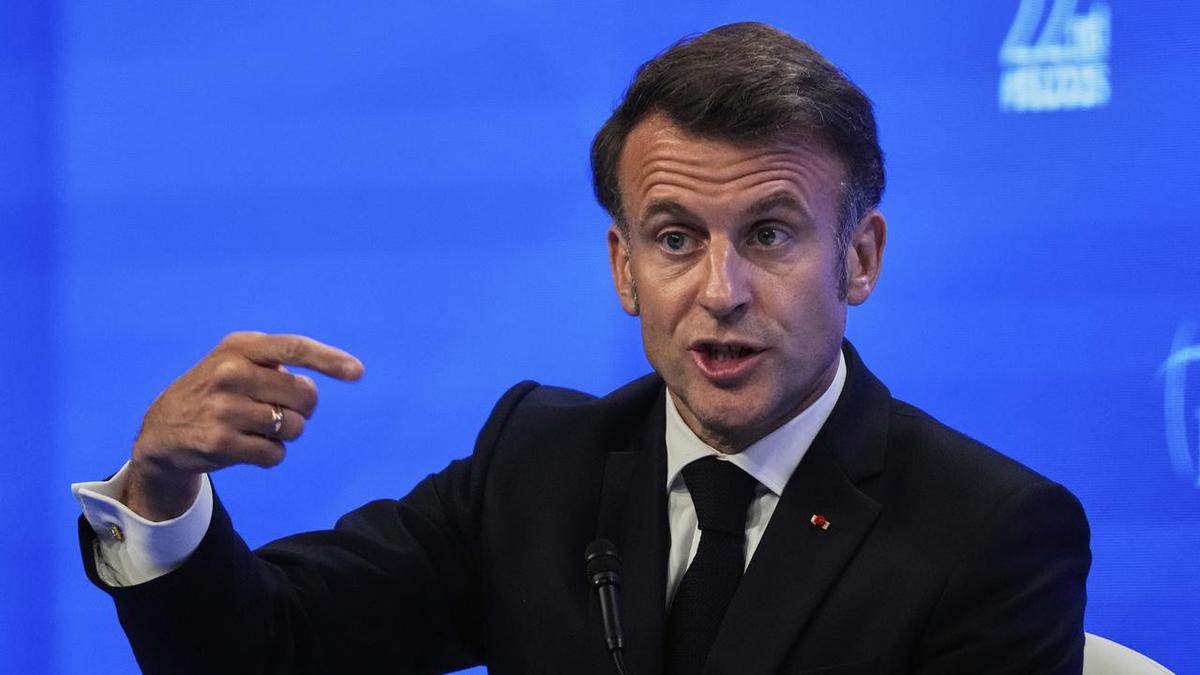China found itself at odds with French President Emmanuel Macron’s recent remarks drawing a parallel between the situation in Ukraine and the potential implications for Taiwan. Macron’s speech at the Shangri-La Dialogue in Singapore raised eyebrows in Beijing, prompting the Chinese embassy in Singapore to denounce the comparison as a “double standard.” The embassy emphasized that Taiwan’s status is an internal matter for China and should not be equated with the conflict in Ukraine.
Macron’s assertion that the handling of the Ukraine crisis could impact the credibility of the United States and Europe in the Indo-Pacific region struck a nerve with Chinese officials. By suggesting that a failure to address Russia’s actions in Ukraine could embolden similar aggression towards Taiwan, Macron touched on a sensitive issue for China. The Chinese embassy’s response highlighted the country’s firm stance on Taiwan, reinforcing its view that the island is an integral part of China.
Amid escalating tensions, the debate over Taiwan’s sovereignty has become a focal point in the broader geopolitical landscape. China’s increasing military maneuvers and political pressure on Taiwan have raised concerns internationally, with the United States and other allies closely monitoring the situation. The US Defense Secretary’s warning of the dire consequences of a Chinese invasion of Taiwan underscores the gravity of the potential conflict in the Indo-Pacific region.
The dynamics at play extend beyond the specific remarks made by Macron, reflecting deeper concerns about the balance of power in the region. Analysts note that the intertwined nature of global politics means that developments in one area can have reverberations elsewhere. The linkage drawn between Ukraine and Taiwan underscores the complex web of relationships and strategic calculations shaping international relations.
Macron’s comments at the Shangri-La Dialogue were not isolated, with similar sentiments resonating among regional diplomats and experts. The underlying message of solidarity with Ukraine as a means to deter Chinese aggression towards Taiwan highlights the interconnected nature of security challenges in the Indo-Pacific. The current geopolitical climate underscores the need for a nuanced approach to addressing regional flashpoints and maintaining stability.
As tensions persist and strategic rivalries continue to evolve, the implications of actions taken in one context reverberate across different theaters. The delicate balance of power in the Indo-Pacific region underscores the need for careful diplomacy and strategic foresight. The intersection of interests and the potential for miscalculations highlight the complexities of navigating international relations in an increasingly interconnected world.
In conclusion, the friction sparked by Macron’s remarks serves as a microcosm of broader geopolitical tensions and the intricate dynamics shaping international relations. The juxtaposition of Ukraine and Taiwan underscores the multifaceted challenges facing global powers in navigating complex security landscapes. As stakeholders maneuver to safeguard their interests and maintain regional stability, the delicate balance of power in the Indo-Pacific remains a critical issue with far-reaching implications for the global order.









Leave feedback about this